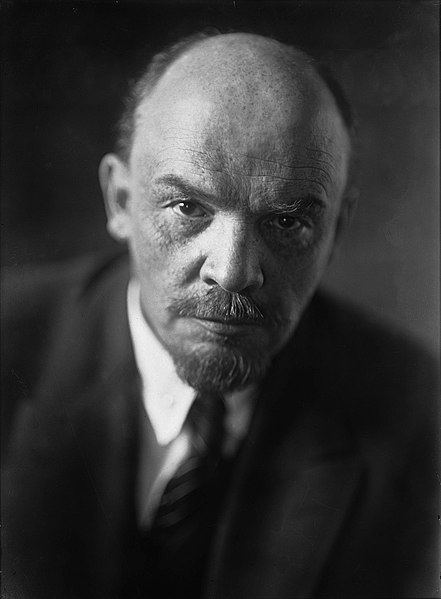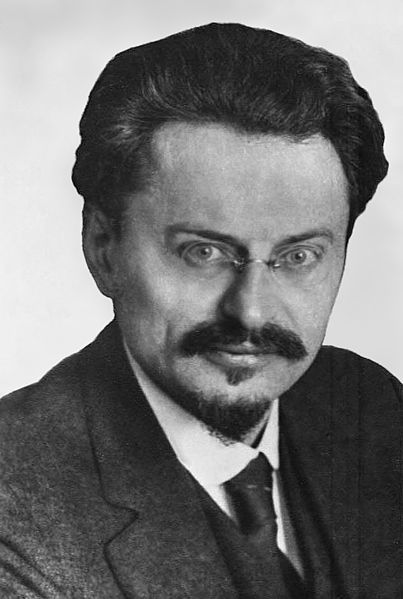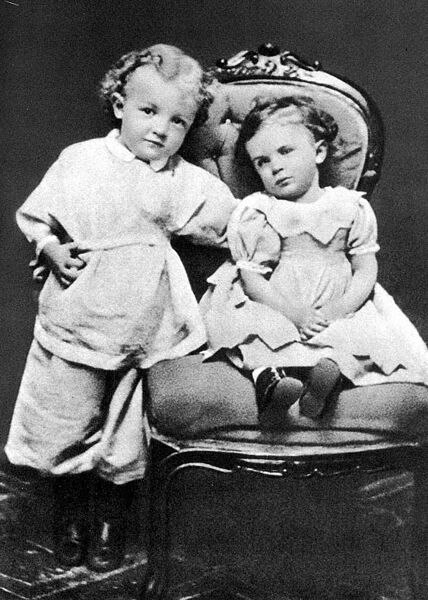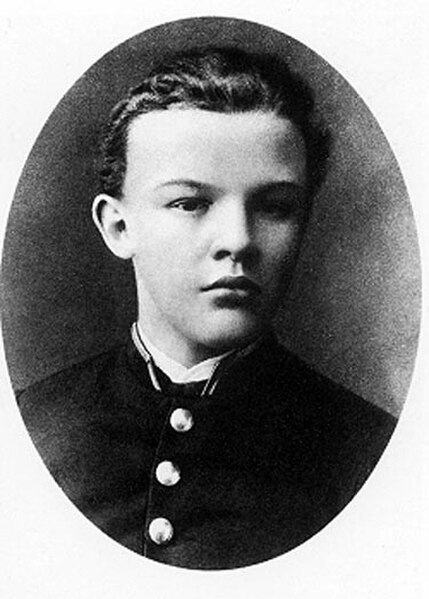Leninism is a political ideology developed by Russian Marxist revolutionary Vladimir Lenin that proposes the establishment of the dictatorship of the proletariat led by a revolutionary vanguard party as the political prelude to the establishment of communism.
Lenin's ideological contributions to the Marxist ideology relate to his theories on the party, imperialism, the state, and revolution. The function of the Leninist vanguard party is to provide the working classes with the political consciousness and revolutionary leadership necessary to depose capitalism.
Vladimir Lenin, whose policies and politics allowed the Bolshevik vanguard party to realise the October Revolution in Russia in 1917
First edition Russian cover of Lenin's 1917 book Imperialism, the Newest Stage of Capitalism
1970 French edition of Lenin's 1917 book The State and Revolution
Leon Trotsky was exiled from Russia after losing to Stalin in the factional politics of the Bolsheviks
Vladimir Ilyich Ulyanov, better known as Vladimir Lenin, was a Russian revolutionary, politician, and political theorist. He served as the first and founding head of government of the Russian Soviet Federative Socialist Republic from 1917 until his death in 1924, and of the Soviet Union from 1922 until his death. Under his administration, Russia, and later the Soviet Union, became a one-party socialist state governed by the Communist Party. Ideologically a Marxist, his developments to the ideology are called Leninism.
Lenin in 1920
Lenin's childhood home in Simbirsk (pictured in 2009)
Lenin (left) at the age of three with his sister, Olga
Lenin c. 1887








